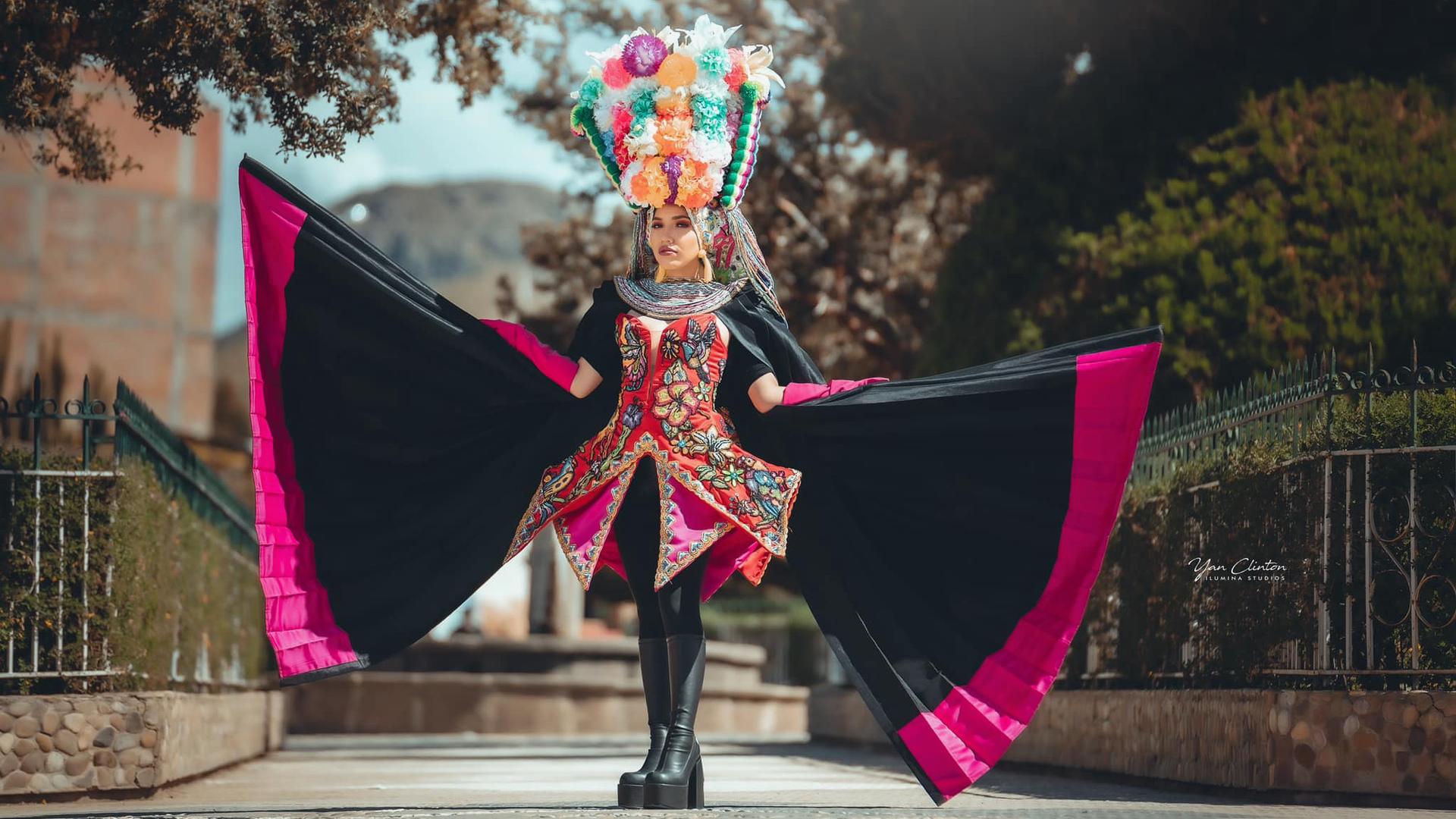At 13, Renata Flores was participating in an “American Idol”-style show in Peru but it got canceled, so she posted her song on YouTube. It was a cover of “House of the Rising Sun” by the British band The Animals, translated into Quechua.
The video exploded. Eight years later, she’s a rapper and leader among a few Peruvian artists making music in the Indigenous language.
During a recent visit to her home studio in the Andean town of Ayacucho, Flores looked like any other 21-year-old. She wore ripped jeans, a bright green top and colorful necklaces, and her hair was up in ponytails and braids.
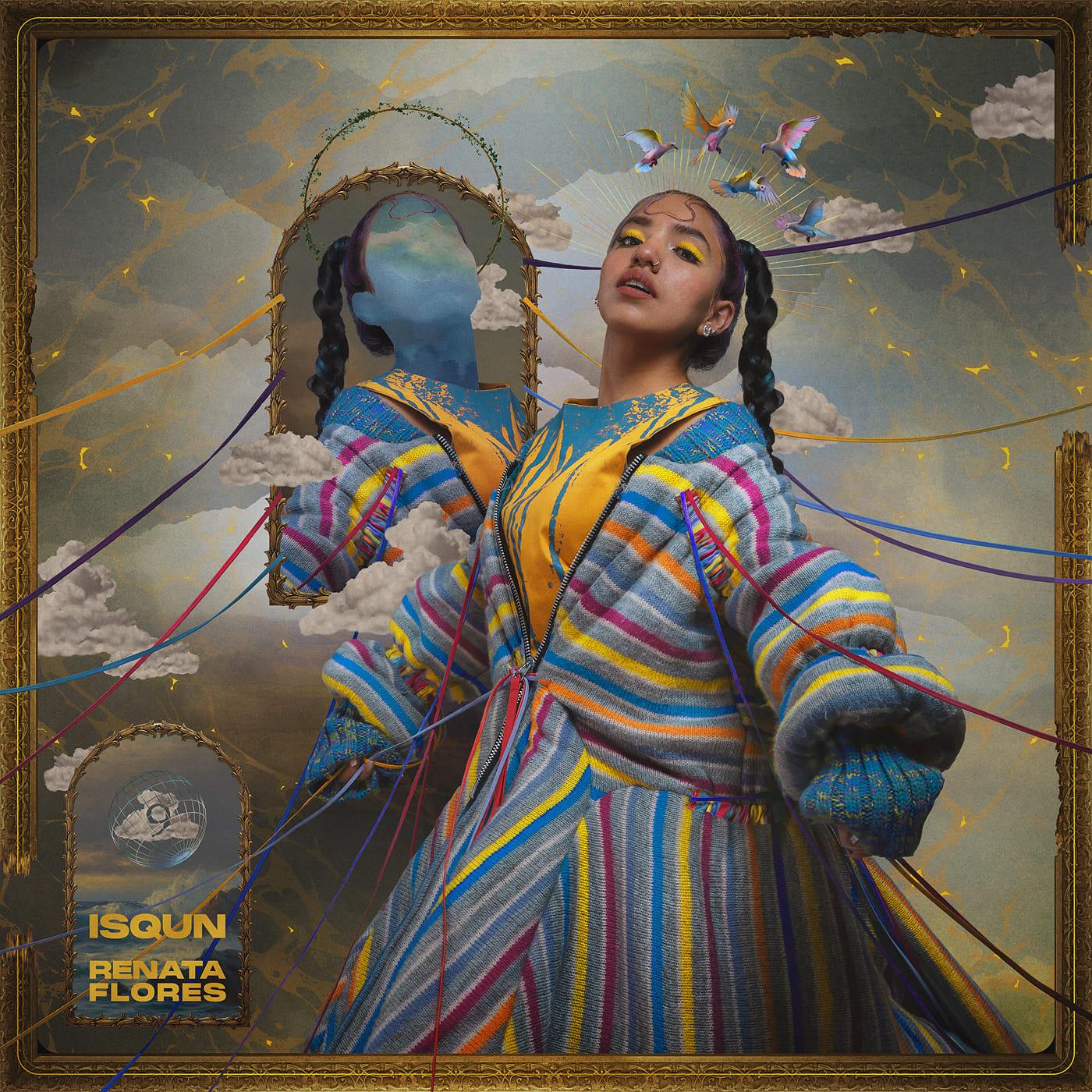
But she was hard at work on her second album, which is coming out in the next few weeks, and she continues her mission to use hip-hop to fight discrimination.
Flores and three young musicians were putting final touches on a song inspired by the holiday celebrating Peru’s independence from Spain, which is coming up on July 28. The song will probably be called “Raimi,” which means “Party” in Quechua.
“In the Andes region, independence took much longer and came after a lot of fighting,” Flores said. “Even today, I feel people here are not really free.”
Flores lives in Ayacucho, which is a 12-hour drive southeast of Lima. In the 1980s, the city was the cradle of the Sendero Luminoso, or Shining Path, a communist guerrilla group.
Flores said her new album is both personal and political.
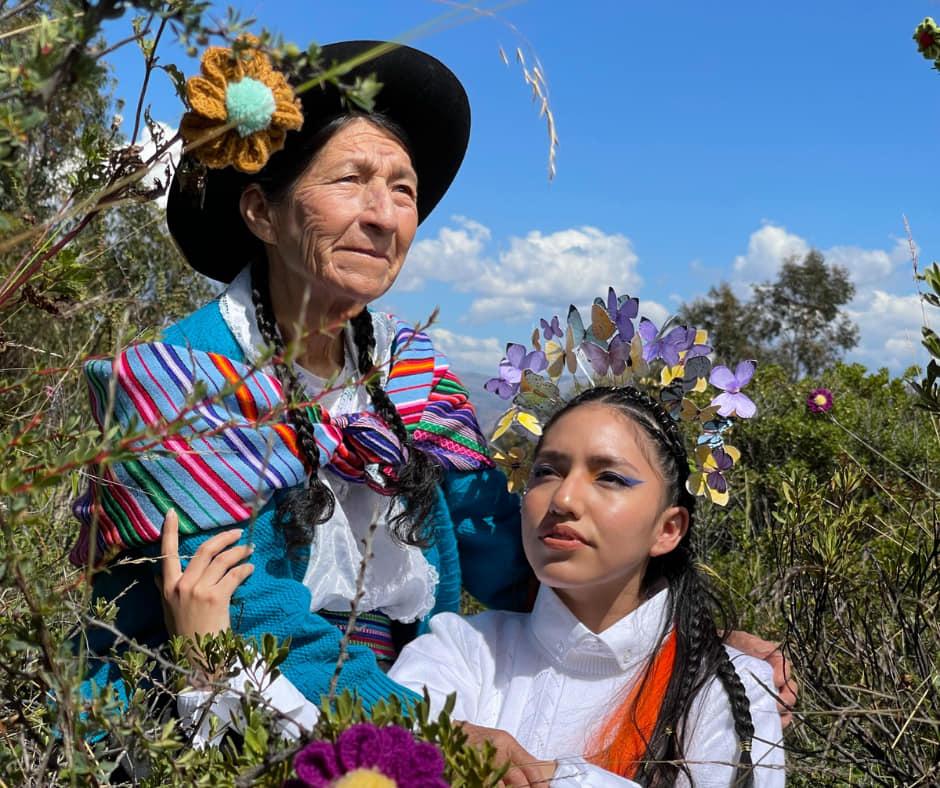
“The songs will have a connection to what I feel and what I experienced and to Mother Earth,” Flores said. “The planet is a living being that provides us with food, but we haven’t treated her well.”
Since releasing her first album in March of last year, Flores has grabbed national and international attention. She had a small movie role and collaborated with popular Peruvian singers like Eva Ayllón. She also scored a few corporate sponsorships, including with the telecommunications company Entel and the drink manufacturer Inka Cola.
“It’s very difficult to find that mix from trap to hip-hop in Quechua and even more difficult for a woman to do it,” said Rosa Chávez Yacila, a journalist who covers gender issues and Indigenous populations for the website Ojo Publico in Peru.
Chávez said Flores evolved quickly as an artist. Her first album, “Isqun,” or “Nine,” places women as protagonists in Peru’s history, a turning point in the young singer’s career.
“She finds a purpose, she realizes she has something to say, and she follows that mission,” Chávez said.
Américo Mendoza-Mori, a leading academic in Quechua at Harvard University, agrees.
“Renata is not just becoming an advocate about the use of the language, but becoming an advocate on cultural reclamation,” Mendoza-Mori said.
He said Quechua is the most-spoken Indigenous language in the Americas — about 10 million people use it. But it has long carried a stigma. He said that during Peru’s civil war, which began in 1980 and continued until 2000, 75% of those killed spoke an Indigenous language.
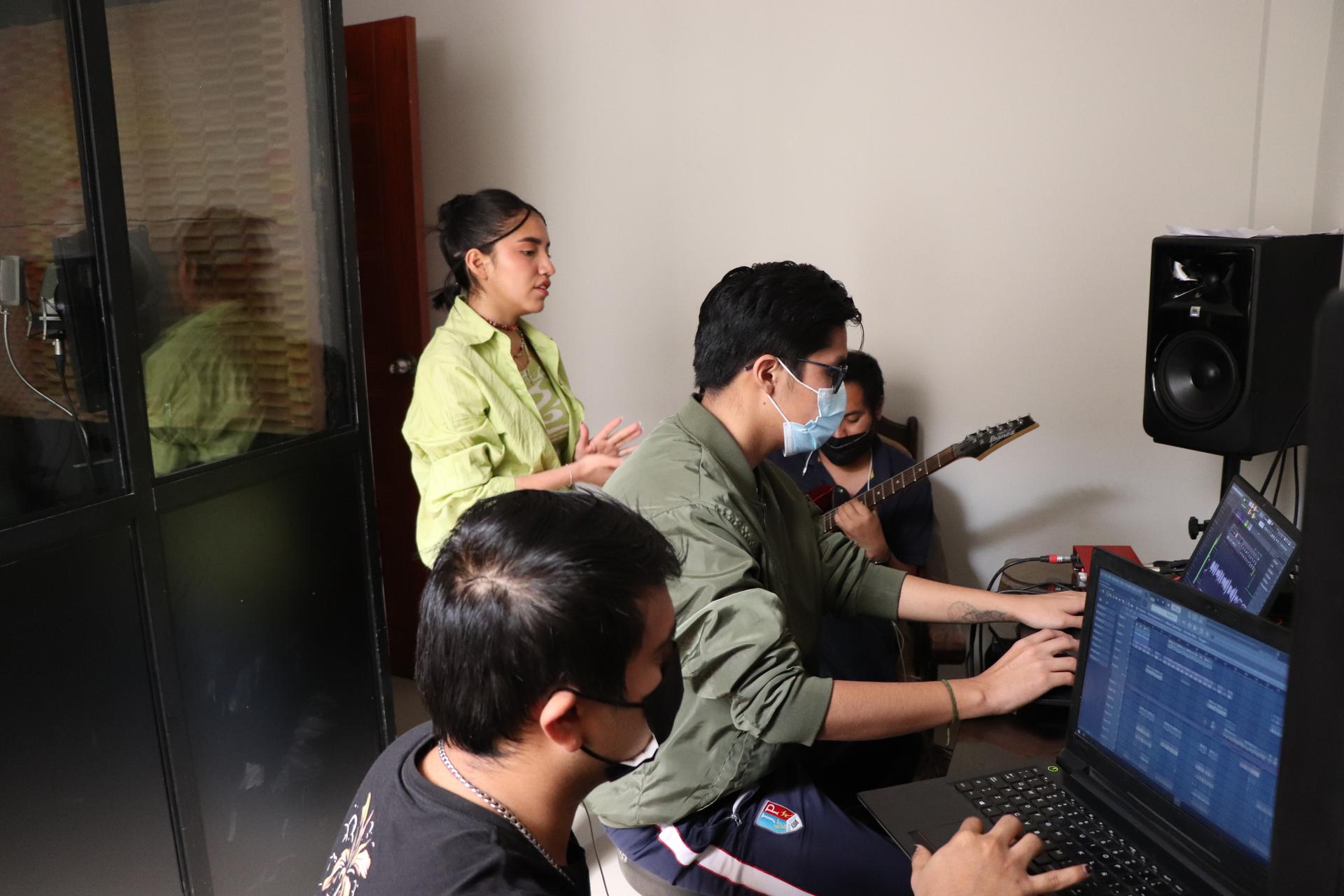
“At some point in our history, speaking Quechua or an Indigenous language could lead people to die,” he said.
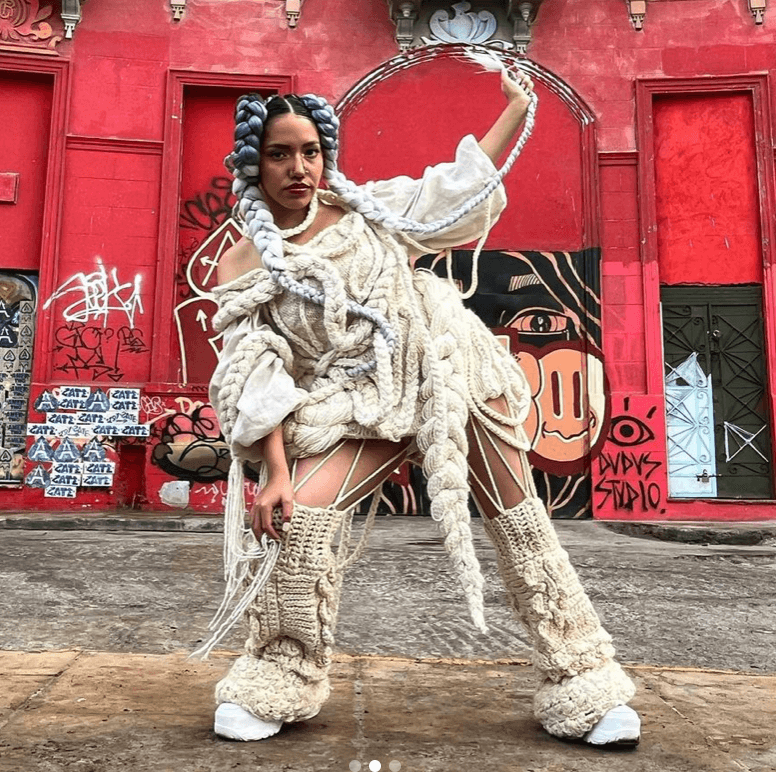
Flores is part of a generation that didn’t grow up speaking Quechua and is trying to reconnect with the culture. In her music videos, she wears colorful, Indigenous clothing, often against the backdrop of traditional celebrations.
Flores’ path to music started with her parents, who used to play in a rock band. Her mother, Patricia Rivera Canchanya, runs a music school in Ayacucho.
The idea of singing in Quechua came from Rivera, who said she played a tape of a blues song in the Indigenous language for her daughter.
“She liked it, and I gave her the task to make a version with the piano because it was her main instrument,” Rivera said. “She sounded it out phonetically and sang it. It sounded beautiful.”
Other covers in Quechua followed, including Michael Jackson’s “The Way You Make Me Feel.” At 16, Renata Flores started writing her own songs.
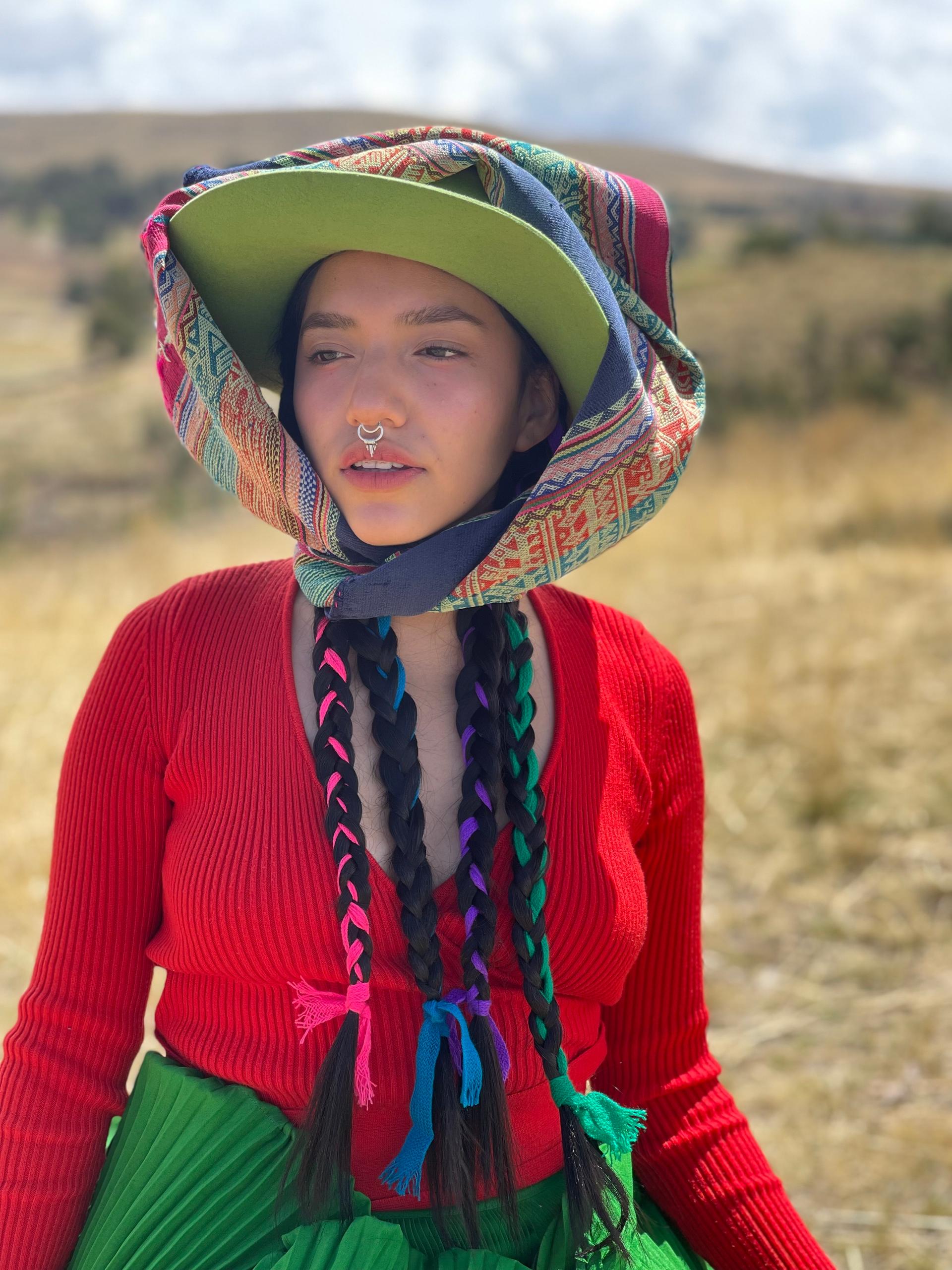
Rivera says her daughter now carries a big responsibility by addressing her cultural heritage in her music.
By the time she was 14, Flores was investigating her ancestry and talking to her grandmothers.
“We used to speak to her in Spanish, we would only use Quechua when trying to hide something from her,” Rivera said, laughing.
Flores started studying Quechua and now takes classes three times a week.
The rapper has found a big following on social media — on YouTube, Instagram and TikTok. But she still doesn’t get radio play.
“I believe it’s because I sing in Quechua, they say people won’t understand it,” Flores said. “That’s one of the reasons I’m using more Spanish in the new album.”
She said that she wants people to understand her, to get the message. Flores is broadcasting to the world that she’s Quechuan and she’s proud.
Vera Haller and Gisele Regatão are both journalism professors at Baruch College in New York City.
Support for this story was provided in part by a PSC-CUNY Award, jointly funded by the Professional Staff Congress and The City University of New York.
We want to hear your feedback so we can keep improving our website, theworld.org. Please fill out this quick survey and let us know your thoughts (your answers will be anonymous). Thanks for your time!
